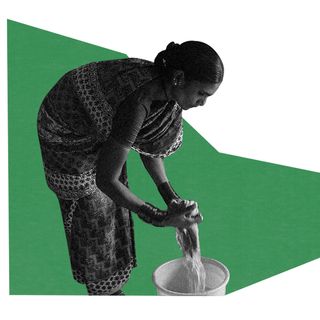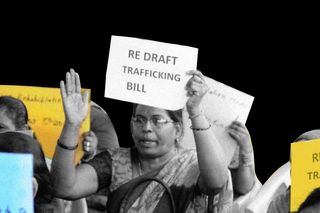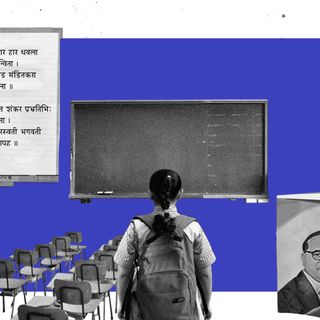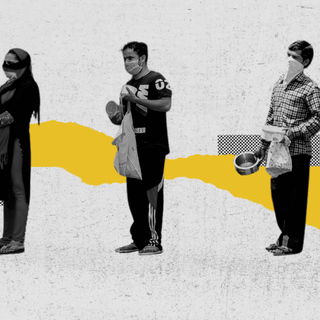
New Anti‑Trafficking Bill Fails to Address Sex Workers’ Concerns, Activists Say
Sex worker organizations argue the proposed legislation conflates trafficking and sex work.

Two weeks ago, the government released the new bill for addressing human trafficking for public comments. Following that, sex worker organizations raised concerns regarding the ambit of the draft legislation and sought more time to address ambiguity. But despite protests, the government has listed the bill for discussion in the upcoming Lok Sabha session without taking the concerns into account.
The government introduced the Draft Trafficking of Persons (Prevention, Protection, and Rehabilitation) Bill, 2021 on June 30th, inviting stakeholders to submit their comments for consideration by July 14th. The bill in question had been in the works for over two years, and sex workers have consistently and vehemently voiced their issues with the bill.
However, the government gave stakeholders only two weeks to formally voice their objections and feedback pertaining to the new draft. Organizations and activists noted that, legally, any draft legislation is supposed to be in the public domain for comments for 30 days. Moreover, the restrictive deadline did not allow room for sex worker organizations to gather feedback from different parts of the country that were still under lockdown.
“The Ministry has no real intention of considering, let alone accepting, any views and suggestions given by stakeholders on the Bill,” the All India Network of Sex Workers (AINSW) said in a letter.
Feedback is also difficult owing to the language of the bill. “The Draft Bill is only available in English. To discuss the provisions of the draft Bill with sex workers and know their assessment of the provisions, we need to translate it into regional languages and distribute it among them,” Protim Ray, a Kolkata-based doctor associated with the Durbar Mahila Samannaya Committee (DMSC), which is associated with AINSW, told The Wire.
The primary argument against the new bill is that it criminalizes sex work — and does not provide any exit or rehabilitation options for people already in the profession voluntarily. This will leave them more vulnerable to law enforcement measures, activists argue.
Related on The Swaddle:
All The Arguments You Need: to Convince People Sex Work Should Be Decriminalized
Further, not recognizing sex work as a form of work not only eliminates the trade itself but also leaves more room for exploitation due to there being no safety nets or labor protections. Sex workers under the new legislation can become more vulnerable to extortion and violence since, as criminalized subjects under the law, they cannot seek its protection when in danger.
Sex workers are protesting the fact that the bill conflates sex work with trafficking. Lawyers point to a clause in the bill that states “the consent of the victim shall be irrelevant and immaterial in the determination of the offense of trafficking in persons,” as one which could end up putting voluntary sex workers in prison.
“Sex work is different from trafficking and it is a form of self-employment that is stigmatized… We are often arrested even without a client present,” Nalini Jameela, a former sex worker and noted activist, told The Hindu earlier this year.
Arguably, the moral panic surrounding sex work stems from an association between “sex work” and “sex trafficking” — an understanding that the Bill doesn’t adequately address.
The legalities of the bill are complex, and untying sex work from trafficking requires nuance. “Lawyers need time for careful examination of the clauses and assess possible implications. Two weeks is no time at all,” Ray added.
Sex worker collectives across 17 states wrote to the Ministry of Women and Child Development, urging for more time to collect feedback and state their grievances. The All India Network of Sex Workers (AINSW) wrote to the Ministry again on Monday to protest the government’s indifference to the concerns of stakeholders.
United Nations human rights’ activists have also previously expressed concern over the 2018 Bill — the predecessor of the current document. They noted it leans too heavily into criminal law; that it did not sufficiently incorporate a human rights and “victim-centered” approach, instead emphasizing “rescue” raids and institutionalization of sex workers in the name of protection. This approach has not changed in the 2021 Bill, experts note.
Moreover, experts argue that the bill also harms the very people it claims to protect — trafficked persons. By adopting a punishment-oriented deterrence approach, the Bill doesn’t address the root causes of trafficking and may instead undermine rather than protect the rights of trafficking survivors.
Bandana Pattanaik and Leah Sullivan, from The Global Alliance Against Traffic in Women (GAATW), wrote: “Implementing a rights-based approach that facilitates, and does not criminalize, migration and one that promotes decent work is the most constructive approach to preventing human trafficking.”
Rohitha Naraharisetty is a Senior Associate Editor at The Swaddle. She writes about the intersection of gender, caste, social movements, and pop culture. She can be found on Instagram at @rohitha_97 or on Twitter at @romimacaronii.
Related


Casteism Still Thrives in Elite Schools in India. What Would Anti‑Caste Education Look Like?
